Community
A community is a group of people who live in the same area and are connected by social, economic, and cultural factors. Communities can be small, like a neighborhood, or large, like a city or town.
Types of Communities:
- Rural Community: A community located in the countryside, often with a focus on agriculture and natural resources.
- Urban Community: A community located in a city or town, with a higher population density and a focus on commerce and industry.
- Suburban Community: A community located on the outskirts of a city, with a mix of residential and commercial areas.
Characteristics of a Community:
- Shared Values: Communities often have shared beliefs, traditions, and customs that help bring people together.
- Services and Facilities: Communities provide essential services such as schools, hospitals, and public transportation to meet the needs of the residents.
- Social Interactions: People in a community interact with each other through events, gatherings, and local activities.
- Local Government: Communities have local authorities and governing bodies that make decisions and enforce laws to maintain order and provide for the common good.
Study Guide Questions:
- What is a community?
- What are the different types of communities?
- What are some characteristics of a community?
- How do people in a community interact with each other?
- Why is local government important in a community?
Studying communities can help us understand how people live and work together, and how we can contribute to making our own communities better places to live.
.◂Science Worksheets and Study Guides First Grade. My senses
Study Guide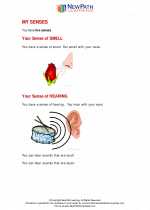 My senses
My senses  Activity Lesson
Activity Lesson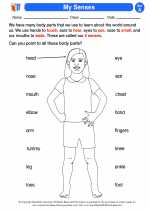 My Senses
My Senses  Worksheet/Answer key
Worksheet/Answer key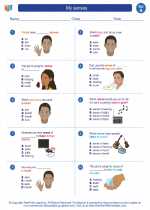 My senses
My senses  Worksheet/Answer key
Worksheet/Answer key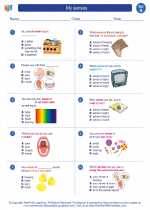 My senses
My senses  Worksheet/Answer key
Worksheet/Answer key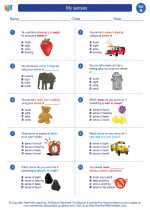 My senses
My senses  Worksheet/Answer key
Worksheet/Answer key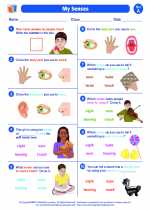 My senses
My senses  Worksheet/Answer key
Worksheet/Answer key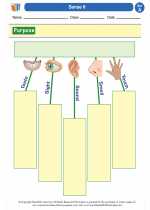 Sense It
Sense It  Worksheet/Answer key
Worksheet/Answer key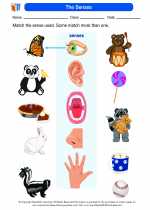 The Senses
The Senses  Vocabulary/Answer key
Vocabulary/Answer key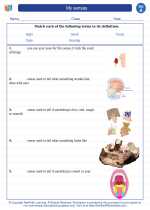 My senses
My senses 

 Activity Lesson
Activity Lesson
 Worksheet/Answer key
Worksheet/Answer key
 Worksheet/Answer key
Worksheet/Answer key
 Worksheet/Answer key
Worksheet/Answer key
 Worksheet/Answer key
Worksheet/Answer key
 Worksheet/Answer key
Worksheet/Answer key
 Worksheet/Answer key
Worksheet/Answer key
 Vocabulary/Answer key
Vocabulary/Answer key

The resources above cover the following skills:
PHYSICAL SCIENCE (NGSS)
Waves and their Applications in Technologies for Information Transfer
Students who demonstrate understanding can:
Make observations to construct an evidence-based account that objects can be seen only when illuminated.